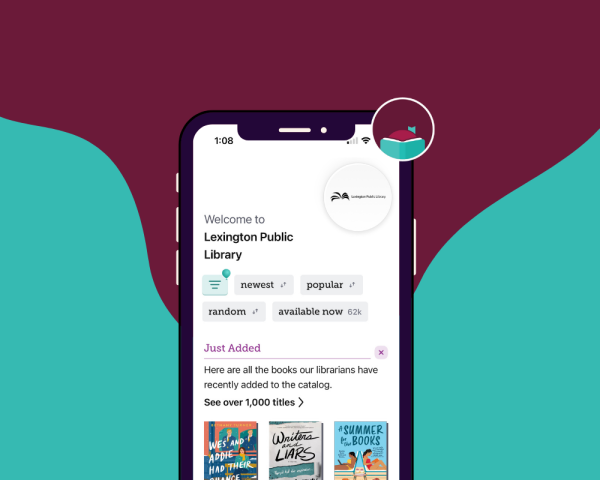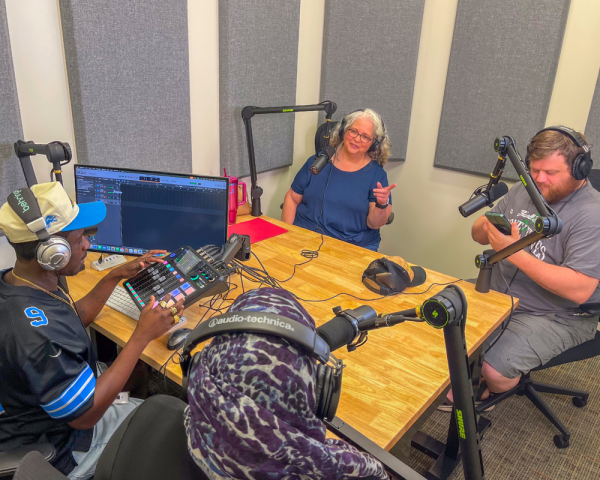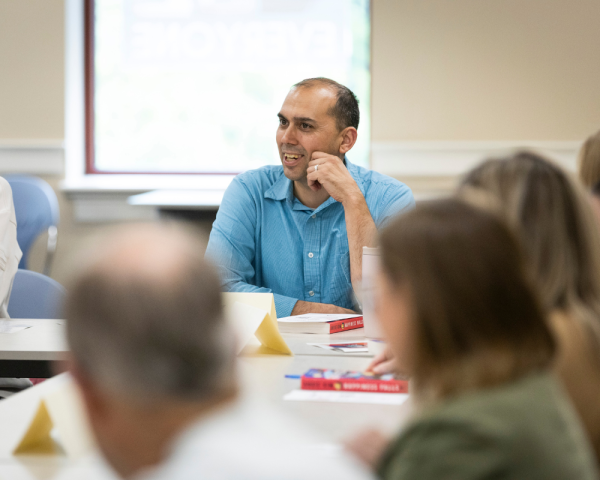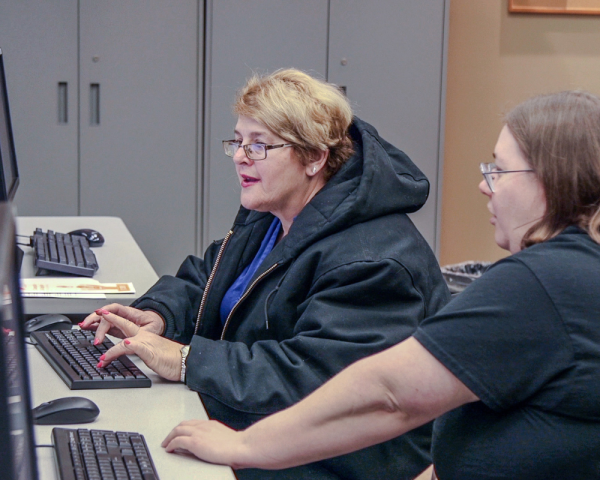

Website Search
Use this form to add a digital version of your library card to your digital wallet.
With your free library card, gain access to a diverse collection of print books, ebooks, audiobooks, online classes and databases, and more. You can apply for a traditional, wallet-sized card and key chain tag or a digital library card to add to your smartphone’s digital wallet (iOS and Android compatible).
An eligible parent or legal guardian can complete this form to apply for a digital library card for a juvenile.
Eligible applicants can complete this form to apply for a digital library card.
Several pieces of equipment require additional supplies such as PLA filament, vinyl, and metal backings. Some supplies are available for purchase in our learning spaces. Customers ages 13 and up who have signed the Experiential Learning Agreement and Equipment Use Policy, which is available to sign in-person at any of the four learning spaces, and live in Fayette County or a reciprocal county receive an $8 credit each month for material purchases. If you exceed this credit, you can still purchase additional supplies using credit, Mobile App Pay or Mobile Pay, or tapping to pay.

Read the Lexington Herald-Leader in its original printed format, including pictures. New issues are published on Sunday, Wednesday, and Friday. Includes issues from January 1, 2016 to present.
Celebrate Lexington, Kentucky’s 250th anniversary all year long. Join us for programs, galleries, podcasts, and more highlighting our city’s history, heritage, and legacy.
The Lexington Public Library is home to four collaborative creative spaces for making, learning, exploring, and sharing. These spaces offer a variety of events, high-tech and low-tech equipment for patron use, and serve as a space to build community, explore your creativity, and develop personal interests.
Sample projects
Film a music video, 3D print a fidget toy, digitize old family photos, sew a costume or mend your favorite pair of pants, embroider a t-shirt, comb bind a book, start a podcast, record in the audio booth, create content with the green screen, make custom magnets or buttons, engrave a keychain, print a poster, make custom stickers, and more.
Celebrate Black History Month at LPL
Throughout February, join us as we celebrate Black history with programs, materials, podcasts, and more.
The William Stamps Farish, III Theater at the Central Library is available to the community for lectures, live music, community forums, film festivals, small theatrical productions, dance performances, literary readings, debates, and other creative uses.
Have a question? Ask us! You can contact us via email, phone, chat, or text. Book a librarian for one-on-one help. Suggest a purchase to help us improve our collection.
All databases are available from this page.
Registration required. Participants can register as a 3-person team by registering under one name then adding two guests. Individuals will be grouped together to make a three person team if registering alone. For ages 13-17.
Throughout June, join us as we celebrate Pride Month with programs, books, podcasts, and more.
Join us for Kentucky Legends: a series of programs exploring Kentucky culture, history, and lore. Programs include author visits, Chautauqua performances, live music, activities and crafts, and more.
This is your gateway to our most popular resources. Search for books and eBooks, access tools for research and learning, and discover our unique collection of genealogy and local history materials.
Stories of Lexington's history told through the Kentucky Room archives.
The Lexington Public Library welcomes your time and talents! There are a number of volunteer opportunities available, and we will accommodate your preferences for location and hours as much as possible based on what we have available. From After School programs, to ESOL programs, to Makerspace open studio help, and beyond—we have a variety of opportunities for you to connect with your community through volunteering.
If books are your thing, this is your place. Browse the newest titles in our collection, take a deep dive into comics and graphic novels with the 741.5 bulletin, request a personalized "bag of books," and more.
All the Library Can Be
The library is essential to a thriving community, ensuring equitable access to information, education, and technology for all. We raise funds to support Lexington Public Library programs, services, and special projects that go beyond what public dollars alone can support.











